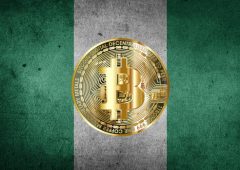Crypto Exchange Binance and Social Media X Blocked in Venezuela
12.08.2024 16:08 1 min. read Alexander Stefanov
The Venezuelan government has recently imposed restrictions on several online platforms, including the cryptocurrency exchange Binance and the social media network X, amid political unrest following the recent presidential election.
According to the anti-censorship group VE sin Filtro, a DNS block has disrupted access to Binance, impacting both its website and mobile app.
Binance confirmed the issue and reassured users that their funds remain secure while it works to resolve the situation. This comes a day after Venezuelan President Nicolas Maduro announced a ten-day ban on X, following tensions with the platform’s owner, Elon Musk.
The encrypted messaging app Signal also faced access issues, though it remains available through circumvention tools.
Protests erupted after the July 28 election, where both Maduro and challenger Edmundo González claimed victory. The official count declared Maduro the winner with just over 51% of the vote, while González contended that he had secured nearly 70%.
The international community, including the U.S., EU, and several South American nations, has questioned the legitimacy of Maduro’s win, demanding a full vote count.
-
1
Trump Imposes 50% Tariff on Brazil: Political Tensions and Censorship at the Center
10.07.2025 7:00 2 min. read -
2
Key Crypto Events to Watch in the Next Months
20.07.2025 22:00 2 min. read -
3
USA Imposes Tariffs on Multiple Countries: How the Crypto Market Could React
08.07.2025 8:30 2 min. read -
4
UAE Regulators Dismiss Toncoin Residency Rumors
07.07.2025 11:12 2 min. read -
5
Majority of U.S. Crypto Investors Back Trump’s Crypto Policy, Survey Finds
05.07.2025 18:09 2 min. read
Two Upcoming Decisions Could Shake Crypto Markets This Week
The final days of July could bring critical developments that reshape investor sentiment and influence the next leg of the crypto market’s trend.
Winklevoss Slams JPMorgan for Blocking Gemini’s Banking Access
Tyler Winklevoss, co-founder of crypto exchange Gemini, has accused JPMorgan of retaliating against the platform by freezing its effort to restore banking services.
Robert Kiyosaki Warns: ETFs Aren’t The Real Thing
Renowned author and financial educator Robert Kiyosaki has issued a word of caution to everyday investors relying too heavily on exchange-traded funds (ETFs).
Bitwise CIO: The Four-Year Crypto Cycle is Breaking Down
The classic four-year crypto market cycle—long driven by Bitcoin halvings and boom-bust investor behavior—is losing relevance, according to Bitwise CIO Matt Hougan.
-
1
Trump Imposes 50% Tariff on Brazil: Political Tensions and Censorship at the Center
10.07.2025 7:00 2 min. read -
2
Key Crypto Events to Watch in the Next Months
20.07.2025 22:00 2 min. read -
3
USA Imposes Tariffs on Multiple Countries: How the Crypto Market Could React
08.07.2025 8:30 2 min. read -
4
UAE Regulators Dismiss Toncoin Residency Rumors
07.07.2025 11:12 2 min. read -
5
Majority of U.S. Crypto Investors Back Trump’s Crypto Policy, Survey Finds
05.07.2025 18:09 2 min. read


